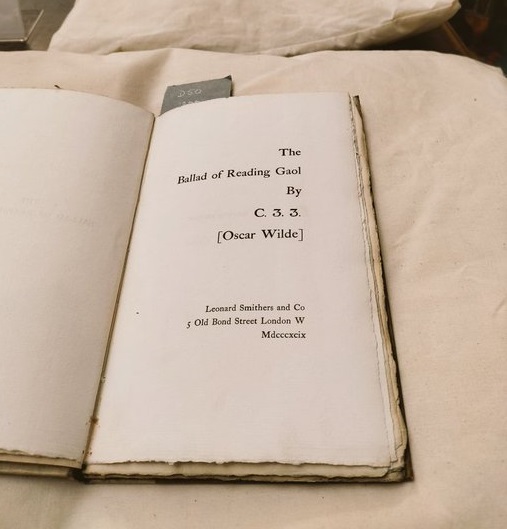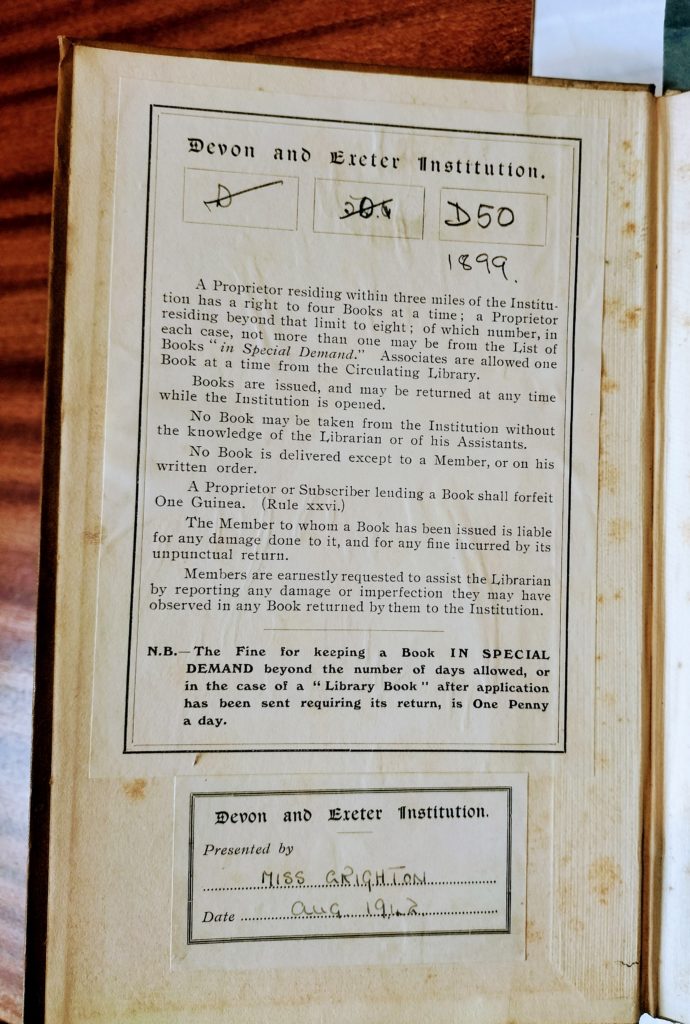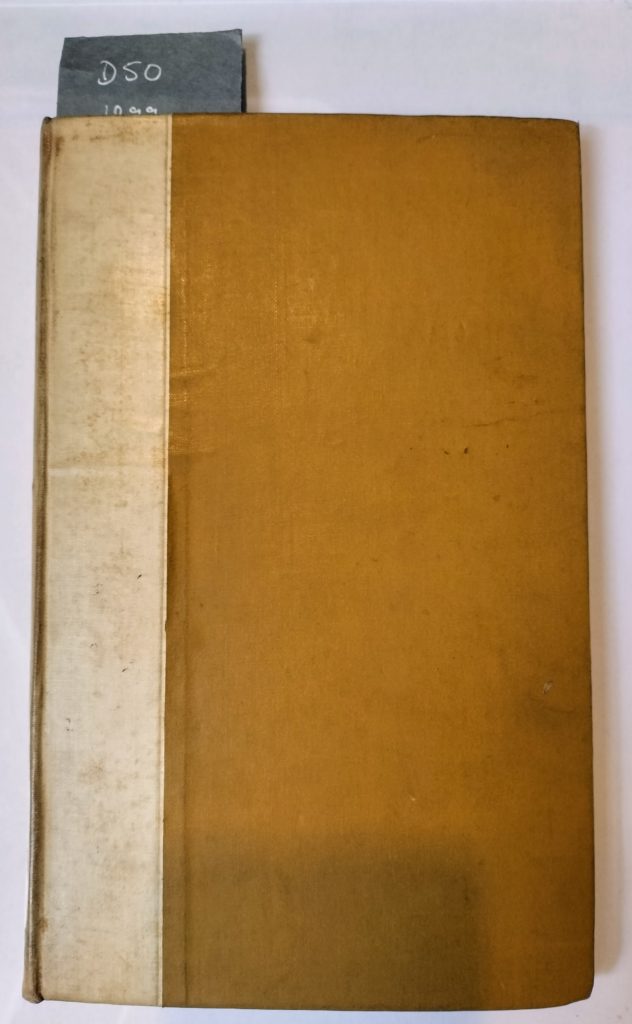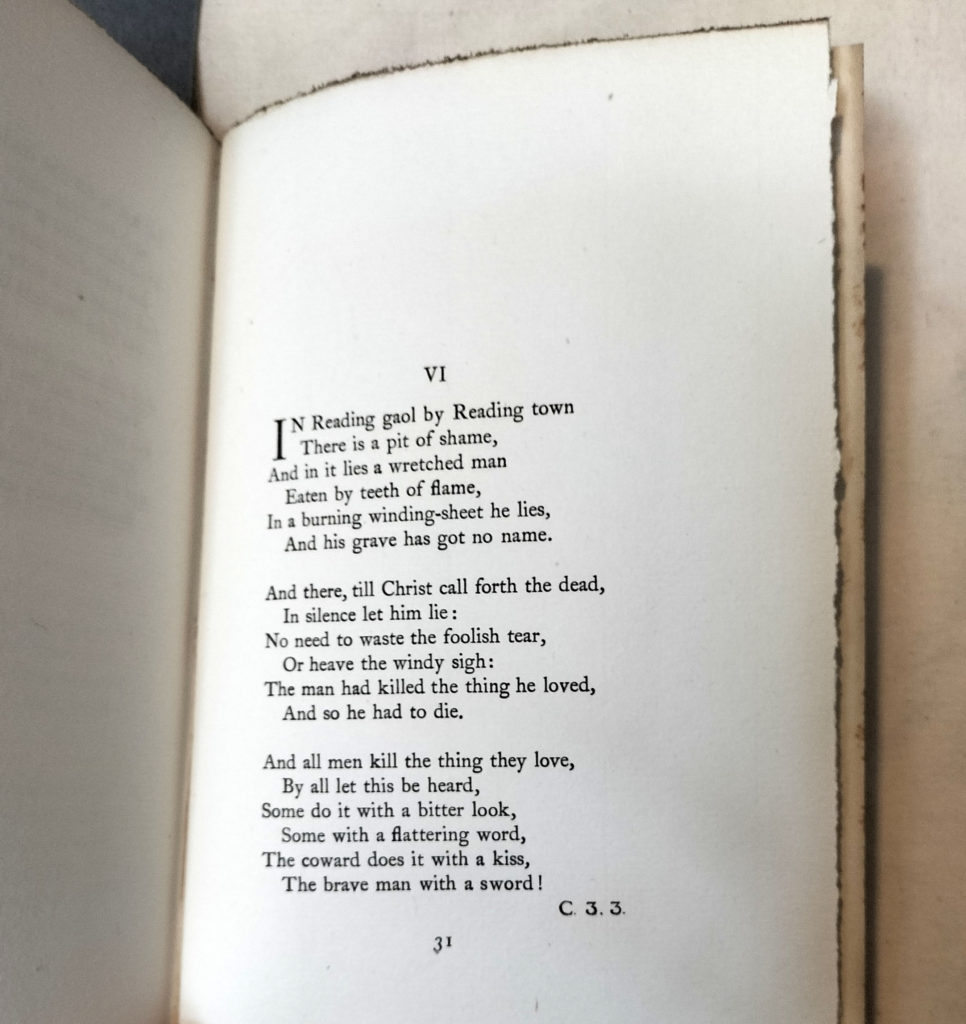Oscar Wilde’s ‘The Ballad of Reading Gaol’

On Saturday 14 May 2022, Exeter Pride takes to the streets to celebrate lesbian, gay, bisexual, trans and questioning communities, in this 50th anniversary year of the UK’s first Pride march. To mark the occasion, our Book of the Month is Oscar Wilde’s The Ballad of Reading Gaol. The publication of this beautiful and poignant poem, following the author’s imprisonment for homosexuality, is a significant moment in LGBTQ+ history.
By the time of his infamous trial in 1895, Wilde was a considerable literary success, with many publications to his name, and a reputation for wit and exuberance. The Importance of Being Earnest had opened to critical acclaim at London’s St. James’ Theatre just a few months earlier. The change in his fortunes began when he received a calling card from the 9th Marquess of Queensbury, calling him a ‘posing somdomite [sic]’. Queensbury was the father of Alfred Douglas, known as ‘Bosie’, with whom Wilde was in a romantic relationship. Unhappy with this description of himself, Wilde took Queensbury to court for libel. The revelations about his personal life that would come from this trial led instead to Wilde’s own imprisonment for ‘gross indecency’, under the 1885 Criminal Law Amendment Act, which made homosexual acts illegal.

Wilde wrote The Ballad of Reading Gaol in exile in Berneval-le-Grand in northern France, shortly after his release from prison. The poem tells the story of the execution and burial of a man convicted of murdering his wife, told from the perspective of a fellow prisoner. The work was dedicated to ‘C. T. W., Sometime Trooper of the Royal Horse Guards’ who was executed at Reading prison in 1896, during Wilde’s incarceration there. The first edition, published in 1898, was simply attributed to the pseudonym ‘C.3.3’: Wilde’s prison cell number, although the real author’s identity was immediately well known. The poem’s merits were widely recognised, although many found it hard to separate it from their opinions on Wilde’s conduct. One London newspaper commented that ‘it is his degradation, of which he thus reminds us, that brought him into the company of the murderer to whose memory “The Ballad of Reading Gaol” is dedicated’. Despite this, the book sold well and additional copies were quickly printed.
 It was not until the seventh edition of the work was published in 1899 that Oscar Wilde’s name first appeared on the title page, although the pseudonym still remained. It is a copy of this edition that is held in the library of the Devon and Exeter Institution. The book consists of a cinnamon coloured cloth cover, which was specially requested by the author, and simple gold lettering on the spine. Wilde is said to have been particularly satisfied with the size of the book, which was tall and slender. The bookplate pasted into the front cover tells us that our copy was donated by a ‘Miss Crighton’ in August 1942. Detailed provenance of the book is unknown, but it is interesting to consider what it meant to own a copy of this controversial publication in the early twentieth century.
It was not until the seventh edition of the work was published in 1899 that Oscar Wilde’s name first appeared on the title page, although the pseudonym still remained. It is a copy of this edition that is held in the library of the Devon and Exeter Institution. The book consists of a cinnamon coloured cloth cover, which was specially requested by the author, and simple gold lettering on the spine. Wilde is said to have been particularly satisfied with the size of the book, which was tall and slender. The bookplate pasted into the front cover tells us that our copy was donated by a ‘Miss Crighton’ in August 1942. Detailed provenance of the book is unknown, but it is interesting to consider what it meant to own a copy of this controversial publication in the early twentieth century.

With or without Wilde’s name on the title page, the decision to publish a work such as this had not been without its risks. Wilde’s publishers after his imprisonment were a small London-based firm by the name of Leonard Smithers and Co. In his book Publisher to the Decadents, James G. Nelson described Smithers as a daring and courageous individual, risking his own reputation to publish works by avant-garde and controversial authors. There were also commercial ramifications to taking works such as these; despite its popularity, the book was not stocked by national bookseller W. H. Smith, who had a reputation for a puritanical approach to selecting books for sale.
Both author and publisher were profoundly impacted by the prejudices of the age. Wilde died an outcast in Paris in 1900, and Smithers, deserted and bankrupt, in 1907.


